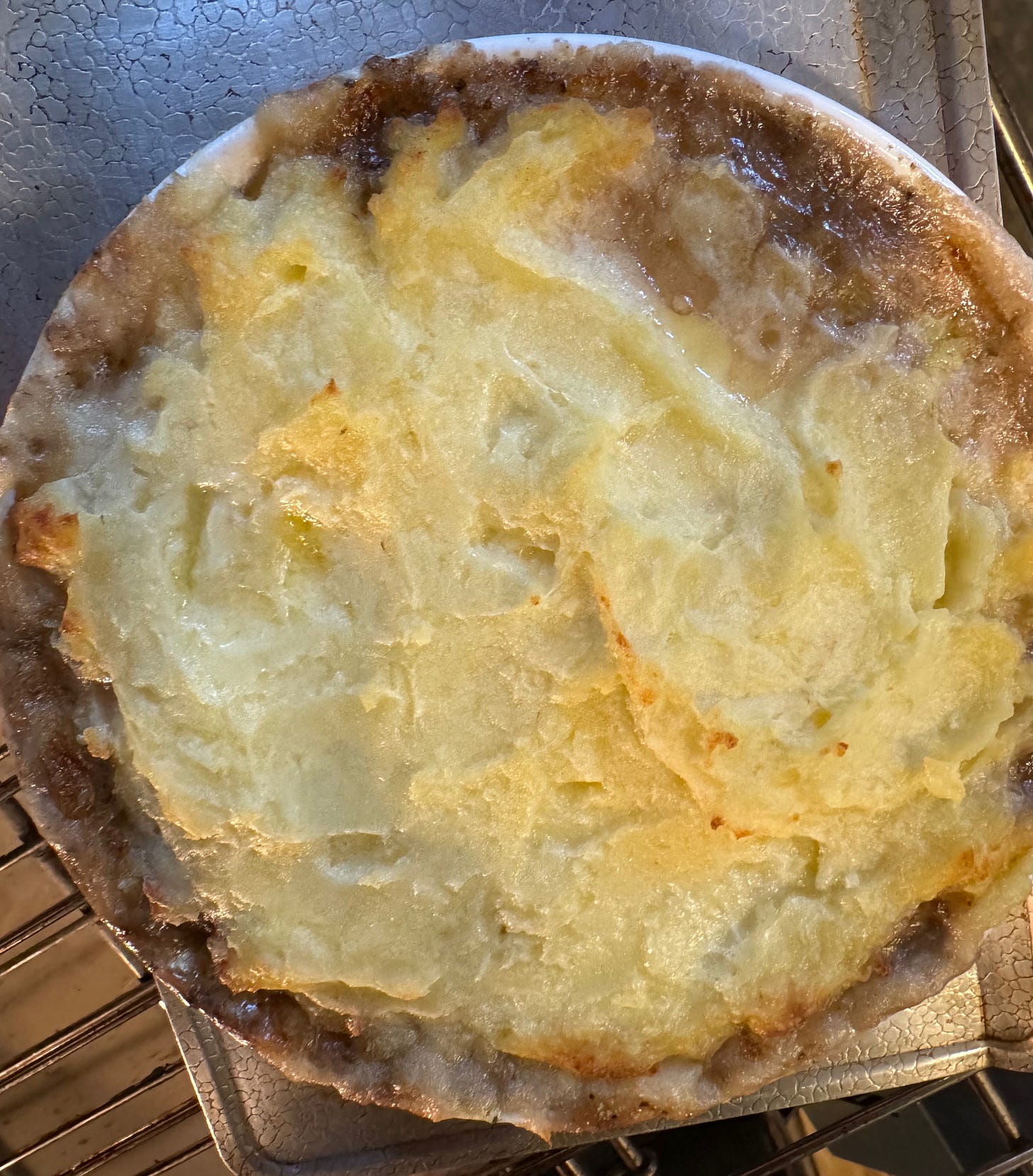Totally eclipsed
We (that is, my little local family including daughter and grandson) are on our way early tomorrow morning, Monday, to view the Totality, as folks around here are calling it. We’ll head northwest toward Monson, up near the Canadian border on the edge of what some of us still call the Great North Woods, just south of Maine’s imposing Moosehead Lake. Wild country but we’re expected at Marylou Ranta’s Beard-awarded restaurant The Quarry, improbably located in this tiny (population 600+) town—village, it might be called elsewhere in the world. It’s a good place to view the eclipse and a great place to have dinner. I don’t know what we’ll eat but I can almost guarantee that there will be no chili crisp or wild Tuscan fennel pollen, unless we bring it ourselves. This is not a restaurant for bucket-listers who want to consume only That Thing that was written up yesterday on Eater. But it’s delicious food, beautifully prepared and served, and brought to you by the irrepressible Lulu or one of her servers, and I am really looking forward to it after the overwhelming experience of the Totality.
And yes, the weather report says clear and 50º after a solid week of nearly unrelenting snow, ice, hail, and rain.
Why I mourn
Almost 200 aid workers in Gaza have been killed since the conflict began, mostly as the result of Israeli attacks. So why, reasonable people may ask, are we only now getting worked up by the horrendous deaths of the seven from World Central Kitchen? Is this another example, as some have claimed, of Americans turning their backs on tragedy unless it happens to People Like Us?
Well, yes and no. I believe there’s a good reason why we in the United States have felt especially touched by these particular deaths; at the same time, they have forced us to focus on the horror of what is going on in that sliver of territory on the edge of the Mediterranean where two million people, more or less, have been forced into a cage from which there is no escape. Hunters call this “shooting fish in a barrel.”
First of all, World Central Kitchen (WCK) represents a uniquely American response to desperate needs. WCK is spearheaded by Chef José Andrés, an American citizen though Spanish to his core, and the effort to get food to those who need it has found responses across the world--indeed of the workers killed one only had dual US-Canadian citizenship. But the organization represents the way we Americans have always liked to envision ourselves: We see a problem, we find a solution. We call it a can-do attitude and, with the exception of WCK and perhaps a handful of similar groups, it has been notably absent from our national life since around 2016.
In Puerto Rico, for instance, in 2017, when others turned aside from the tremendous devastation caused by Hurricane Maria, with the excuse that it was too tough a problem, too far away, that nothing could be done about it, that it was the government’s responsibility, when the President of the United States tossed rolls of paper towels at a shattered population, José Andrés and his team stepped in and, without asking anyone‘s permission, went to Puerto Rico, set up soup kitchens, cooked the food that people wanted to eat, and served it, hot and nourishing, no questions asked. And they have continued that kind of work ever since in other parts of the world, from Haiti to Ukraine, including many of America’s backyards.
So that’s one big reason why this assassination, which evidence suggests is what it was, resonated deeply with the U.S. population.
Beyond that, there’s another major reason why we in the U.S. pay special attention to what’s happening in Gaza, Palestine, and Israel. To understand that you have only to follow the money. Over the decades since Israel’s founding in 1948, the United States has supplied the country with military aid (military aid alone, not counting other types of assistance) to the tune of $124 billion. You can find out a lot more about that aid in an article by William D. Hartung in The Nation last November: “Washington is currently in the fifth year of a 10-year $38 billion military aid commitment to Tel Aviv, or $3.8 billion per year. This annual figure will be dwarfed by the $14 billion in military aid contained in the administration’s pending emergency aid request.”
Given that (and I have not even mentioned the psychological and emotional investment many Americans have historically felt towards Israel), it’s not difficult to understand why the US population is torn by the conflict, and why the deaths of seven individuals, seven who were simply trying to bring some relief to starving people, have struck so deeply. That was our money that fired those weapons.
I hope that WCK, which has in the event pulled back, will find a way to continue to help. The situation is beyond critical.
Shepherd’s Pie
What to do with all the leftovers from the Easter lunch? Especially those savory lamb shanks with the falling-off-the-bone tender meat and sauce that my daughter-the-chef made, in the style of abbachio alla romana (meaning braised in white wine with anchovies, garlic, and rosemary ). We had way too much for the modest eaters at our table. Later, when I pulled the meat off the bones and weighed it, I had almost two pounds, a good start, I decided, for shepherd’s pie for Wednesday’s supper.
Many recipes for shepherd’s pie begin with a pound or more of raw ground (minced) meat—beef or lamb. Although traditionalists say beef makes cottage pie, while lamb is what’s in shepherd’s pie, the two are otherwise exactly alike. If you happened to have roast beef for the holiday, just follow the directions below and call it cottage pie instead.
Shepherd’s pie sounds like something from old fashioned British cookery but the admirable Jane Grigson once pointed out that it goes back to the invention of the butcher’s mincing machine in the late 19th century. That makes it about 150 years old, so, yes, antique but not a legacy originating with the Norman invasion. For all its antiquity or lack thereof, it’s a terrifically tasty dish and one that sits well on the family table.
Here on the kitchen porch, we believe strongly in the family table, even if the family consists of four roommates sharing an apartment kitchen. Eating together, sharing food, including sharing the preparation, sharing conversation, sharing the clean-up afterwards, is one of the things that keeps us civilized. So make it shepherd’s pie (or cottage pie), perhaps for Friday (pie day) and invite your family or your roommates to settle in.
Content below this line is for paid subscribers only. Please consider becoming a paid subscriber so you can enjoy the whole thing.
Keep reading with a 7-day free trial
Subscribe to On the Kitchen Porch to keep reading this post and get 7 days of free access to the full post archives.






